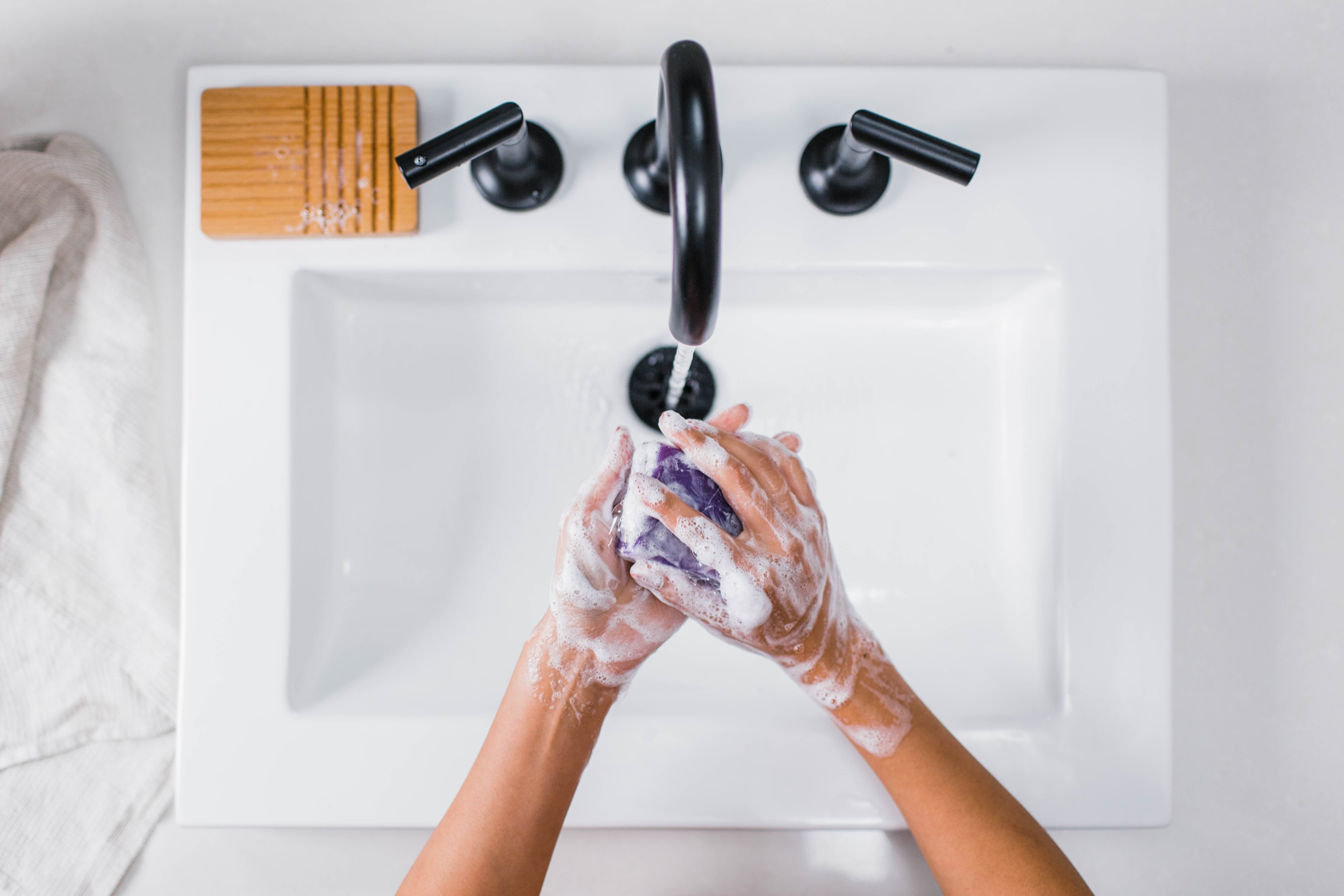Is Antibacterial Soap Better?
The marketing says it all: Kill up to 99.9% of germs with antibacterial soap! Despite this awesome guarantee, antibacterial products are not the best way to rid your skin of harmful bacteria. Let us break it down for you.
We live in a bacteria-infested world. While this sounds scary, you'll be pleased to know that the majority of bacteria is neutral or even good. There are, of course, harmful bacteria and germs which is the stuff we want to wash away. Due to multiple studies, antibacterials are not any more effective at preventing illness and fighting germs than regular soap and water. In fact, in 2016 the FDA *banned 19 antibacterial ingredients for this very reason.
*This ban does not apply to hand sanitizers or hand wipes.
Antibacterial soaps often contain an ingredient called triclosan. Triclosan works to kill or inhibit the growth of bacteria, which can potentially cause you to be antibiotic-resistant. This is not a good thing. As we mentioned before, not all bacteria is harmful. Triclosan, when washed down the drain, is also damaging to the environment. If a commercial soap is claiming to be antibacterial, double check those ingredients.  Our best advice: intensive twenty second hand washing with simple soap and water is the best way to rid your skin of germs. Soap works to break apart microorganisms on the skin, so they aren't transferred to other people or surfaces. Of course there are times when pure sanitization is essential, such as surgical situations or as a short-term solution.
Our best advice: intensive twenty second hand washing with simple soap and water is the best way to rid your skin of germs. Soap works to break apart microorganisms on the skin, so they aren't transferred to other people or surfaces. Of course there are times when pure sanitization is essential, such as surgical situations or as a short-term solution.
The information we have gathered here comes from the FDA directly and our own research conducted with our manufacturing partners. We are not doctors or scientists. Please consult a medical professional for all personal health-related inquiries.



Share:
Skincare From Head To Toe | Step-By-Step | Basin
Bar Soap 101 | Everything You Need to Know | Basin